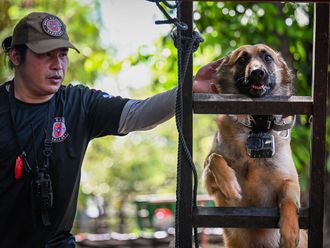Manila: The Philippine government alerted private recruiters to start processing applications of Filipino domestic workers who want to be deployed to Saudi Arabia, following an announcement from Saudi Arabia that applications will be accepted starting on Monday, sources said.
“Many Saudi employers prefer Filipinas in their households. Many of our workers can adapt easily to their employers [abroad]; they can teach English as a second language to the children (of Saudi households); they act as ‘governesses’ in many Saudi homes; they are regarded as efficient and industrious by Saudi nationals,” Maria Mei Victorino, president of Philippine Recruitment Agencies Accredited to Saudi Arabia (PRAASA), told Malaya.
Recruitment agencies are doing their best to comply with the bilateral agreement reached by the Saudi Arabian government and the Philippines with regard to the $400 (Dh1,468) monthly minimum wage for Filipino domestic workers, after a 19-month row on the issue, to benefit both Saudi employers and Filipino workers, Victorino said.
Recruiters and applicants must implement the provision of the revised or new employment contract between Saudi employers and Filipino workers, that passports of the Filipino domestic workers will no longer remain in the hands of their Saudi employers, Philippine Labour Secretary Rosalinda Baldoz also told Malaya.
The new labour agreement between Saudi Arabia and the Philippines will ensure there are no more contract substitutions, maltreatment and abuse in terms of salaries and work hours of Filipinos deployed as maids in Saudi Arabia, Baldoz said.
Implementation of the new labour agreement between the two countries will reinstate Saudi Arabia as one of the top 10 destinations of overseas Filipino workers (OFWs), said Baldoz.
Philippine Vice-President Jejomar Binay, appointed as head of OFW affairs, was the first to announce that Saudi Arabia had agreed to lift the ban on Philippine domestic workers imposed in June 2011.
Riyadh suspended the processing of employment contracts of OFWs after the Philippine government insisted on provisions for protection of OFWs.












